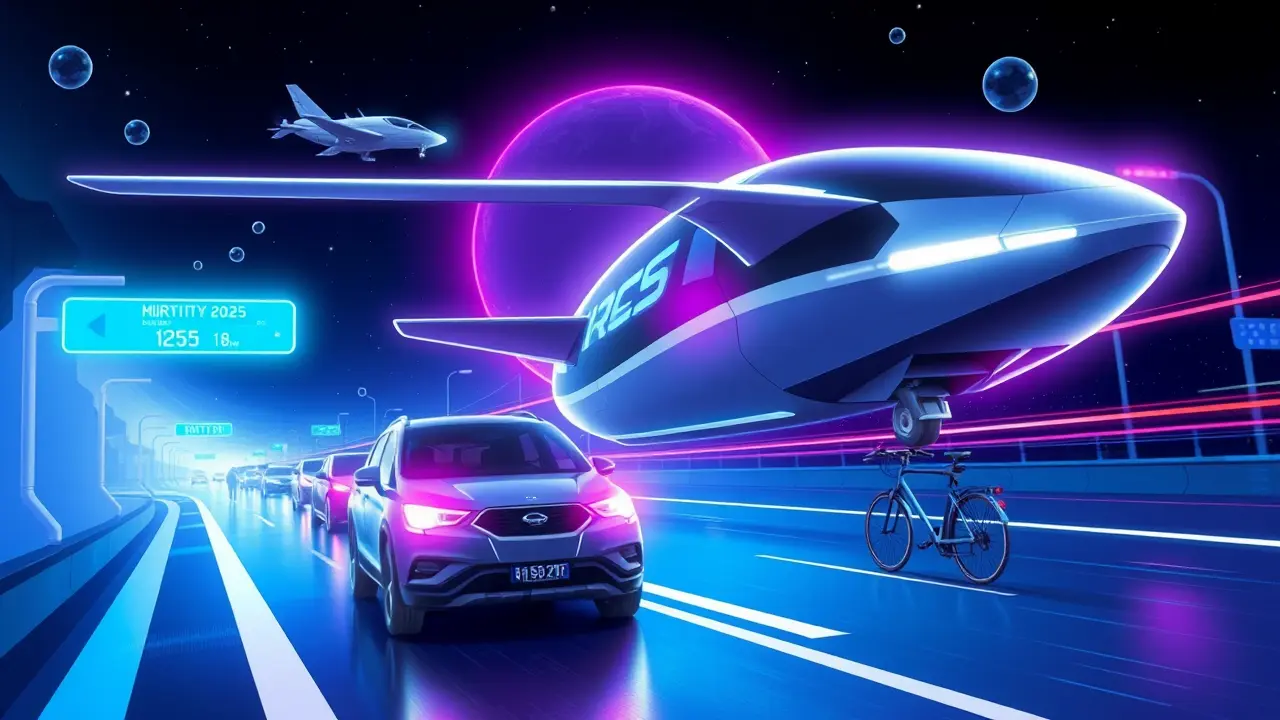
Otherauto & mobilityElectric Vehicles
TechCrunch Disrupt 2025 Mobility News and Insights.
TH
Thomas Green
13 hours ago7 min read
The stage is set, the lights are dimming, and the collective anticipation of the tech world is palpable as we rocket toward TechCrunch Disrupt 2025, an event that has consistently served as the primordial soup from which the future of our daily commutes and global supply chains emerges. This isn't just another conference; it's the annual supernova in the mobility cosmos, a gravitational pull for the brightest minds in electric vehicles, autonomous navigation, and aerial transit, all converging to answer the quintessential human question: how do we get from A to B in a way that doesn't choke our cities and cost us our sanity? The narrative this year feels particularly charged, a direct sequel to the cliffhangers of 2024 where we saw the EV market's growth stutter like a rocket with a fuel line issue, where regulatory frameworks for flying taxis remained as clear as Martian dust storm, and where the promise of truly driverless cars navigating complex urban environments felt perpetually five years away.We stand now at a precipice, looking out at a landscape where legacy automakers, having pledged billions in a high-stakes poker game, are nervously watching their chip stacks dwindle as agile startups from Shenzhen to Stuttgart push the envelope on battery density and software integration. The chatter in the halls will undoubtedly revolve around the solid-state battery breakthroughs that promise to be the Moore's Law for electric transport, potentially doubling range and slashing charge times to mere minutes, effectively rendering 'range anxiety' a quaint historical footnote.But the hardware is only half the story; the real battle is for the digital soul of the vehicle, the operating system that will become as fundamental as iOS or Android, a platform upon which entire economies of apps and services will be built, transforming your car from a depreciating asset into a rolling node in a vast, data-hungry network. Imagine a world, not too distant, where your vehicle, communicating with thousands of others in a seamless, city-wide mesh, orchestrates a ballet of motion so efficient that traffic jams become a relic of a poorly optimized past, much like how we now view dial-up internet.This is the vision of mobility as a service, a subscription-based utopia championed by the Musks and the Lyfts of the world, but it's a vision fraught with peril—cybersecurity threats that could hold entire fleets hostage, the ethical quagmire of algorithmic bias in accident-avoidance systems, and the profound socioeconomic displacement of millions of professional drivers. The insights from Disrupt will therefore extend far beyond the gleaming prototypes on the show floor; they will delve into the geopolitical chessboard, where control over lithium mines in Chile and cobalt supplies in the Democratic Republic of Congo dictates national power, and where the race for semiconductor supremacy between the US and China directly throttles the production lines in Detroit and Wolfsburg.As we peer into this kaleidoscope of innovation and disruption, one cannot help but draw a parallel to the dawn of the commercial aviation age—a period of breathtaking technological leaps, brutal market consolidations, and the eventual reshaping of human geography itself. TechCrunch Disrupt 2025 is our front-row seat to the next great leap, a gathering that will either be remembered as the moment the mobility revolution finally achieved escape velocity or the moment it was forced to confront the harsh realities of physics, economics, and human nature.
#featured
#TechCrunch Disrupt 2025
#future of transportation
#mobility startups
#automotive tech
#industry insights
Stay Informed. Act Smarter.
Get weekly highlights, major headlines, and expert insights — then put your knowledge to work in our live prediction markets.
© 2025 Outpoll Service LTD. All rights reserved.